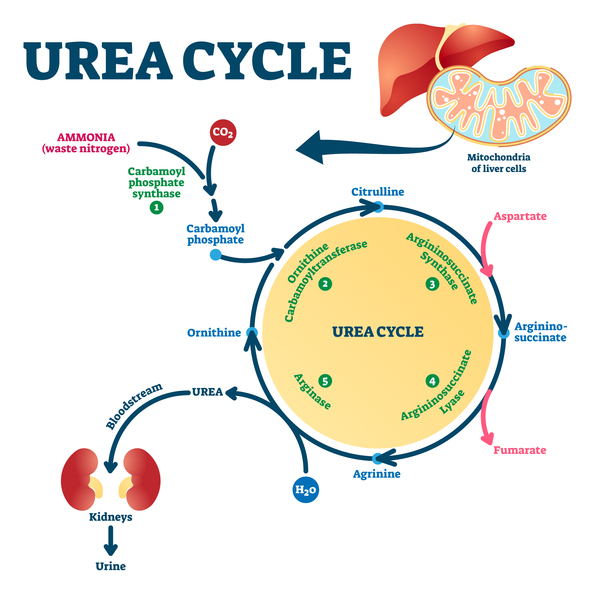Urea Cycle Disorder Takes The Life Of a Young Football Star. How Can We Be Proactive?

By Joy Stephenson-Laws, J.D., Founder
Recently, the father of a high school football star shared the real reason why his son passed at just 18-years-old. At first, he claimed that the cause of death was complications from shoulder surgery.
“I just wanted him remembered as a perfect kid. I just didn't want anybody thinking that he had some abnormality when they thought about him," said James Roper, father of Robbie Roper, according to one report.
The real cause of death was due to complications from urea cycle disorder, a rare genetic condition which can cause toxic levels of blood ammonia. Robbie’s death is particularly tragic, because it also appears that there may have been some medical malpractice.

"He was on the beach, laughing and carrying on and having a good time on Saturday. And then Sunday he started throwing up, and we just thought he had a stomach flu or something. You know, you don't rush to the hospital just for throwing up,” Robbie’s father said.
Robbie’s condition got worse, so his mom took him to urgent care and then to the hospital. According to the report, Robbie’s family said that the medical staff insisted that Robbie was on drugs. The family, however, insisted that this was not possible because Robbie was a quiet kid that never participated in any recreational drug use.
The family even contacted Robbie’s friends and asked “what did he use?,” to which they all replied that he never touched a drug. Furthermore, drug tests administered at the hospital revealed that Robbie was drug-free. However, they discovered that Robbie’s blood ammonia levels were four times the normal amount. He had to be airlifted and taken to another hospital where he was put on dialysis, but “it was too late,” according to his father.
"If they would have been more aggressive in putting him on dialysis, he'd probably still be alive,” his father said.
“Seemingly normal adults with undiagnosed urea cycle disorders may present at emergency rooms with staggering, confusion, combativeness and disorientation that is mistaken for alcohol or drug intoxication,” according to the National Urea Cycle Disorders Foundation.
More on Urea Cycle Disorders
“Urea cycle disorders (UCDs) are a group of inherited conditions; each condition is caused by a faulty gene. Children with UCDs develop high levels of ammonia, a toxic substance, in their bodies,” according to one source.
“Ammonia is a byproduct of protein digestion. Normally, enzymes in the liver help the body convert ammonia to urea, a harmless substance that is excreted in urine. This process is called the ‘urea cycle.’”
People with UCDs may have a missing liver enzyme or it does not work properly. The high ammonia levels that can occur in the body may lead to brain damage, coma and death.
This is actually not the first time that I have blogged about urea cycle disorders. A couple of years ago, I wrote about a 25-year-old bodybuilder competitor who died from having a UCD. She was on a strict diet that included egg whites and protein supplements. I highly recommend reading this earlier blog. It contains a lot of key information about urea cycle disorders and how we can be proactive.
UCDs sometimes go undiagnosed because they do not present themselves until the person with the disorder is stressed by factors such as consuming too much protein, certain viruses, excessive exercise and certain drugs. There is no cure for UCDs, and some people with this disorder may need a liver transplant.
It never hurts to ask your health practitioner about tests for diagnosing urea cycle disorder, especially if you have young children, an infant or are hoping to have a child soon.
Enjoy your healthy life!
The pH professional health care team includes recognized experts from a variety of health care and related disciplines, including physicians, attorneys, nutritionists, nurses, and certified fitness instructors. This team also includes the members of the pH Medical Advisory Board, which constantly monitors all pH programs, products, and services. To learn more about the pH Medical Advisory Board, click here.







